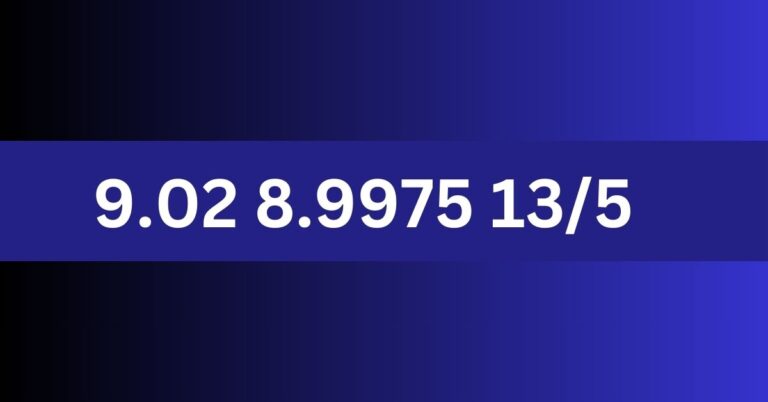What is “Översägt”?
Though it may not be commonly used, the phrase “Översägt” has great importance in some situations. Often used to describe instances where something is exaggerated or embellished, it can be seen as a notion that touches upon exaggeration. Understanding this phrase is crucial for effective communication since it stems from the idea of conveying more than what is truly intended.
The Origins of “Översägt”
The meaning of the word “översägt” can be better grasped by learning its history. Most likely, the origin of the phrase lies in the English language and the concept of “saying too much” or “overstating.” Its cultural meaning evolves with each application, but the essential idea—that it entails exaggeration—remains the same.
How “Översägt” is Used in Everyday Language
The word “översägt” is commonly used in ordinary speech to describe situations when someone might be accused of exaggerating the seriousness of a situation. Someone could be accused of being “översägt” if, for instance, they paint a small annoyance in a negative light. To subtly but effectively point out such exaggerations, this term is a useful tool.
The Psychological Aspect of Exaggeration
The psychological tendency known as exaggeration typically arises from the desire to convey a message with more force. By using “översägt,” speakers may be striving to draw attention to a point or provoke a more forceful response from their listeners. This is seen in stories when certain elements are emphasized for dramatic impact.
The Impact of “Översägt” in Communication
The use of the word “Översäg’t” in conversation might lead to good or bad outcomes. On the plus side, it has the potential to heighten the interest and retention of a tale. The other side is that literal interpretations of exaggeration can cause confusion. Striking this balance is essential for maintaining successful and understandable communication.
Cultural Perspectives on “Översägt”
Levels of exaggeration are seen differently among cultures. Some cultures may look down on overly ornate displays of wealth, while others may find them charming. To properly understand or use the word “Översäg’t” in conversation, one must be aware of several cultural subtleties.
“Översägt” in Literature and Media
The word “Översäg’t” is frequently used to generate suspense or comedy in literature and the media. In order to drive home a point or provide entertainment value, writers and filmmakers may embellish some aspects. As a tool for critiquing or highlighting societal absurdities, this strategy is particularly prevalent in satire.
The Role of “Översägt” in Marketing
An element of “Översäg’t” is regularly used in marketing efforts to promote goods and concepts. In order to attract more customers, ads could embellish a product’s features. There are ethical concerns regarding the boundary between deceptive exaggeration and convincing marketing, even if this can be beneficial.
Recognizing “Översägt” in Conversations
An important talent is the ability to discern when someone is using the word “Översäg’t” in conversation. In order to answer effectively, it is helpful to comprehend the meaning of a statement. If someone is being dramatic to make a point, for example, it’s better to recognize this than to take offense. This will allow for a more fruitful conversation.
Avoiding Miscommunication with “Översägt”
Keep in mind that “Översäg’t” could have several meanings depending on the context to prevent misunderstandings. One way to avoid miscommunication is to be upfront about when you’re being dramatic and when you’re being literal. In more official or professional contexts, when precise expression is required, this is of the utmost importance.
The Fine Line Between Humor and Misunderstanding
The use of “Översäg’t” is indicative of the exaggeration that is common in humorous situations. But there’s a fine line between being hilarious and being easily misunderstood. To make sure the usage of “Översäg’t” adds to the comedy instead of making people confused or angry, it’s important to know the context and who you’re talking to.
The Ethical Considerations of “Översägt”
Concerns regarding communication honesty and integrity are brought up by the usage of “Översäg’t” from an ethical standpoint. While it may not hurt to exaggerate a bit, doing so could lead to outright lying. It is crucial to be cognizant of these moral considerations whenever trust is involved.
The Balance Between Storytelling and Honesty
While embellishment is a common storytelling tool, it is crucial to strike a balance between being truthful and creating an engaging story. Skilled storytellers use “Översäg’t” sparingly and intentionally to avoid losing trust.
Practical Tips for Using “Översägt” Effectively
Use “Översäg’t” intentionally if you want it to have an impact. Think about who you’re speaking to and what they may take away from the situation. If necessary, be ready to explain your meaning after using hyperbole to amplify your message. Taking this route will guarantee that your message is interesting and easy to understand.
Conclusion
The strong communication technique known as “Översägt” may enhance your words with drama, comedy, and emphasis. But there’s also the possibility of confusion and ethical dilemmas. You may manage discussions better and prevent problems if you use “Översäg’t” carefully and notice when other people use it.
FAQs
What does “översägt” mean?
To “Översäg’t” is to overstate or exaggerate anything.
Is “översägt” considered negative?
That depends on the specifics of the situation. It might not be a big deal in lighthearted chat, but it could cause trouble in more weighty contexts.
How can I avoid miscommunication when using “översägt”?
Make sure your audience knows when you’re being exaggerated by being explicit about it.
Can “översägt” be used in professional settings?
To avoid miscommunication or coming out as unreliable, it should be utilized with caution, yet it is possible.
What are the ethical concerns with “översägt”?
One must exercise caution while using exaggeration since it has the potential to deceive.







